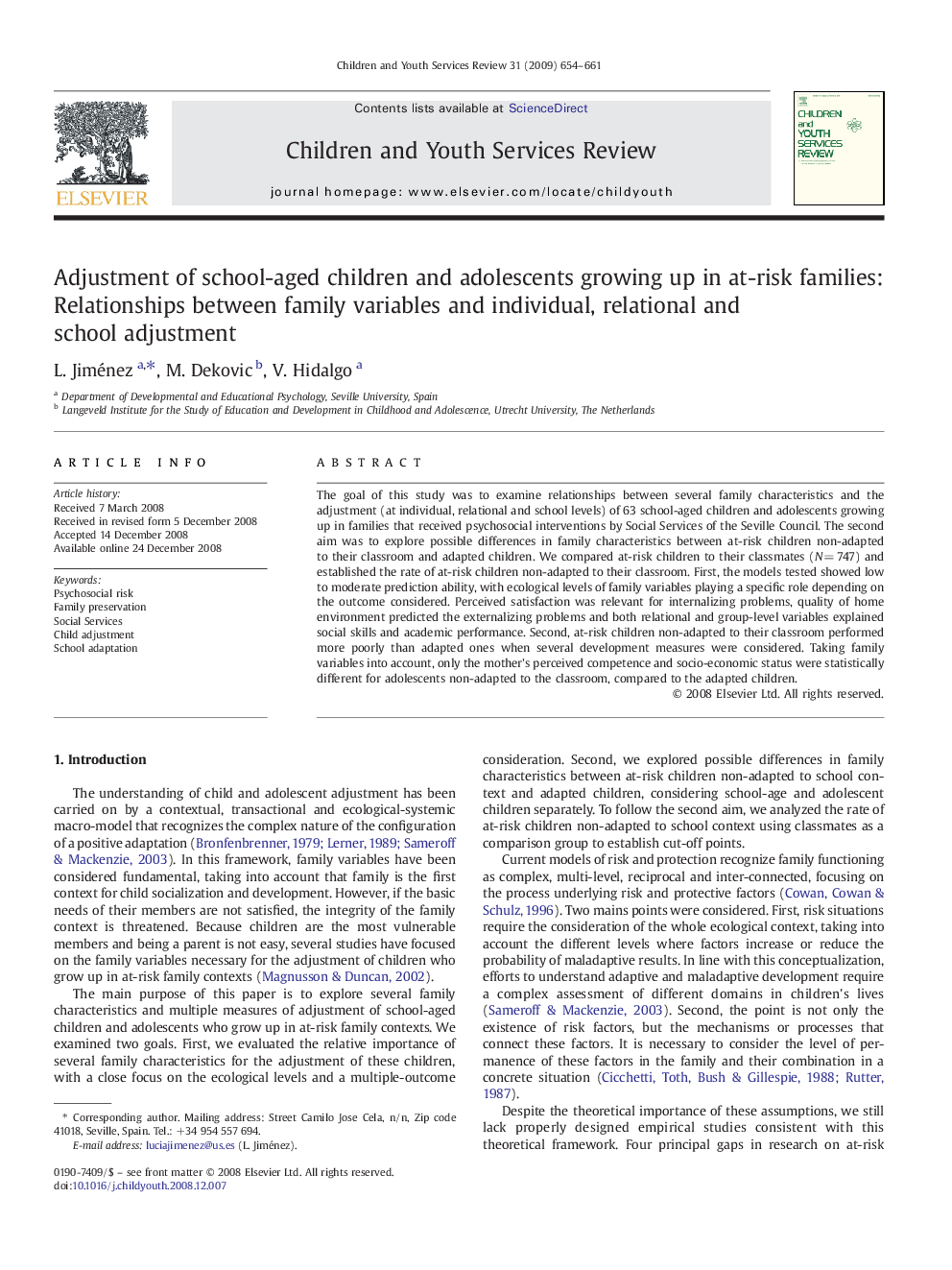| Article ID | Journal | Published Year | Pages | File Type |
|---|---|---|---|---|
| 346921 | Children and Youth Services Review | 2009 | 8 Pages |
The goal of this study was to examine relationships between several family characteristics and the adjustment (at individual, relational and school levels) of 63 school-aged children and adolescents growing up in families that received psychosocial interventions by Social Services of the Seville Council. The second aim was to explore possible differences in family characteristics between at-risk children non-adapted to their classroom and adapted children. We compared at-risk children to their classmates (N = 747) and established the rate of at-risk children non-adapted to their classroom. First, the models tested showed low to moderate prediction ability, with ecological levels of family variables playing a specific role depending on the outcome considered. Perceived satisfaction was relevant for internalizing problems, quality of home environment predicted the externalizing problems and both relational and group-level variables explained social skills and academic performance. Second, at-risk children non-adapted to their classroom performed more poorly than adapted ones when several development measures were considered. Taking family variables into account, only the mother's perceived competence and socio-economic status were statistically different for adolescents non-adapted to the classroom, compared to the adapted children.
